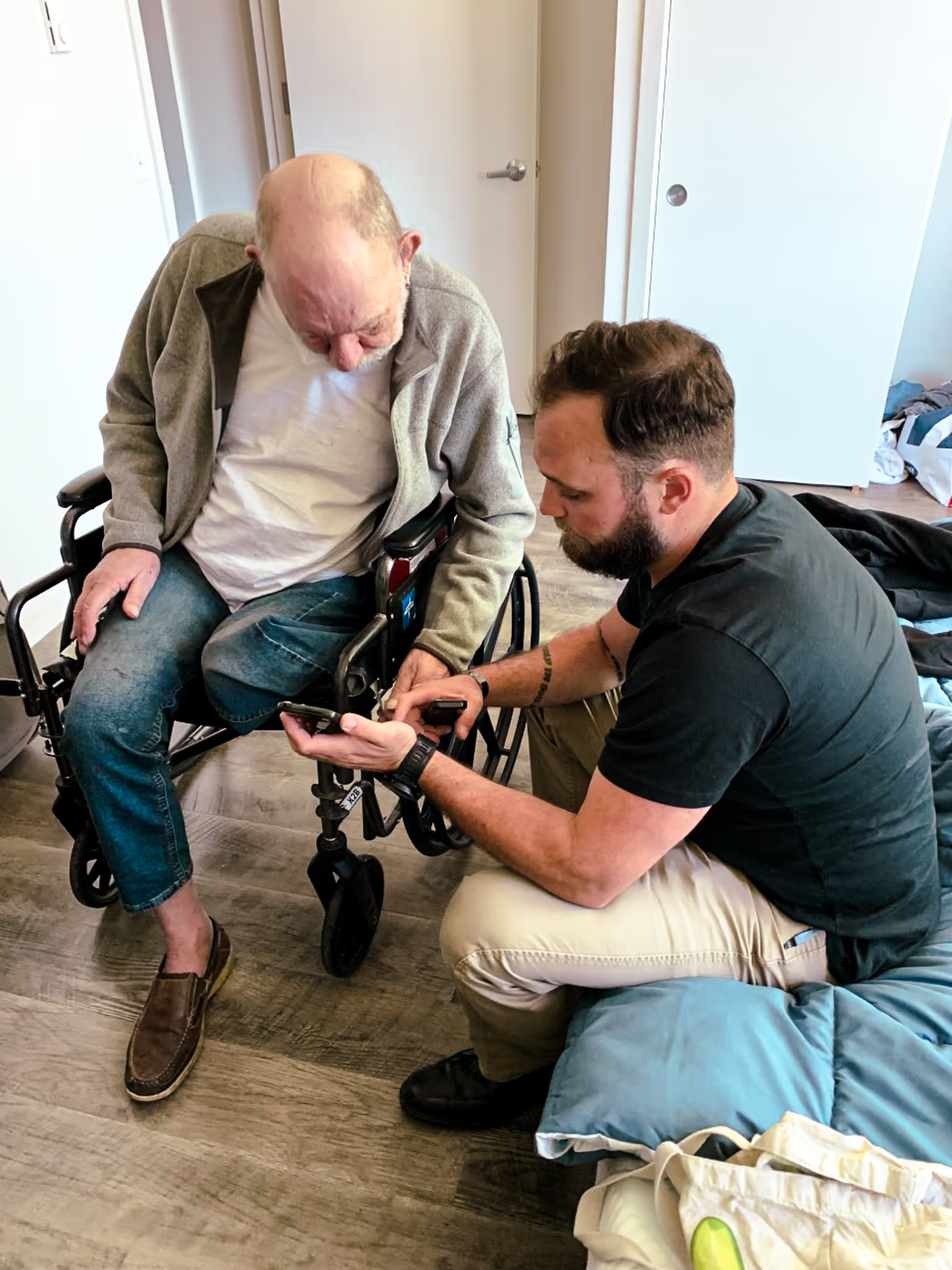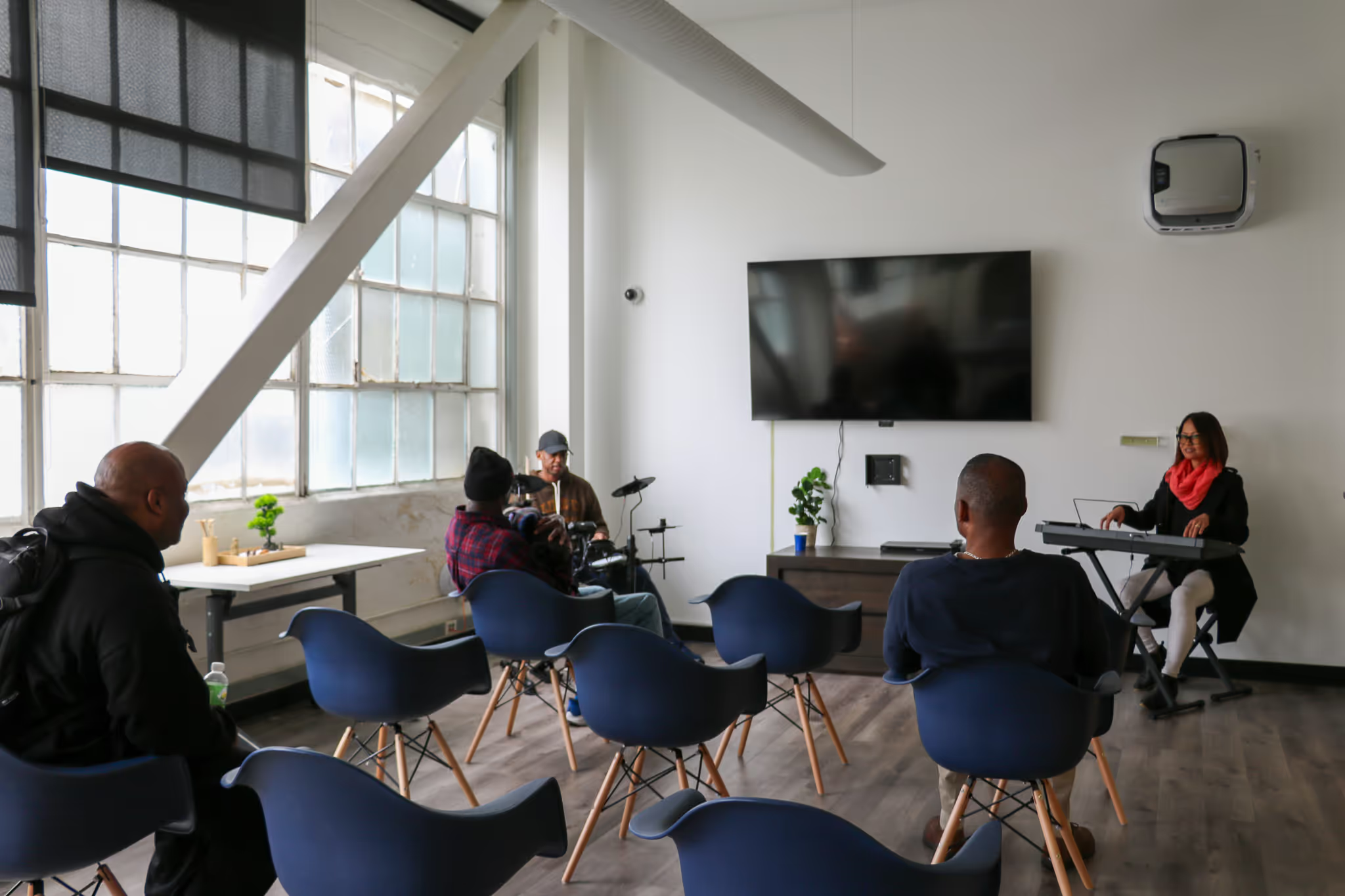We are deeply committed to addressing the urgent needs of senior veterans, finding new solutions to housing veterans, and ensuring that all veterans have access to community-based mental health services.
Need help? Visit our service centers today.

Formerly homeless senior veterans, unhoused veterans, and other traditionally underserved veterans confront a crisis marked by complex physical and mental health issues, limited finances, and inadequate family support. For some veterans, accessing VA care is not an option. Expanding access to community-based care will help to alleviate veterans’ challenges and enhance well-being.
"COVID opened a lot of wounds, and in its wake, more people were suffering with isolation at a time of increased housing instability and a crisis level-level shortage of social workers and mental health professionals. Seniors, veterans and unhoused folks with no family support were hit the hardest."
— Michael Blecker, Executive Director, U.S. Army 1967-1970

of all senior veterans are living in poverty

of our clients are seniors

of veterans feel socially isolated
Housing providers and advocates continue to struggle to keep pace with the demand for services. Complicated by a lack of affordable housing, a shortage of treatment and shelter beds, and a dramatic increase in acuity, progress toward meaningful solutions may seem insurmountable, but we are hopeful at Swords to Plowshares.

“If somebody tells you housing is not the foundation, they are lying. Once you’ve got stable housing, you can keep moving forward. Without it, you're stuck, trying to get out. You can’t build your foundation without a home.”
— Greg Parler, U.S. Army

Swords has doubled in budget, staff, and has significantly expanded programs and services over the past 10 years. With 200 staff across eight sites, ensuring that veterans are connected to the breadth of services we offer can be challenging for both staff and veteran clients.

of clients are impoverished

of clients reported a disability

are unhoused when they reach out